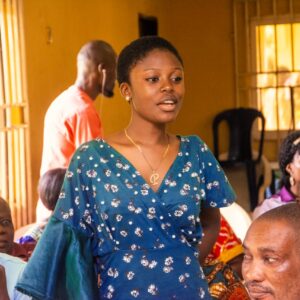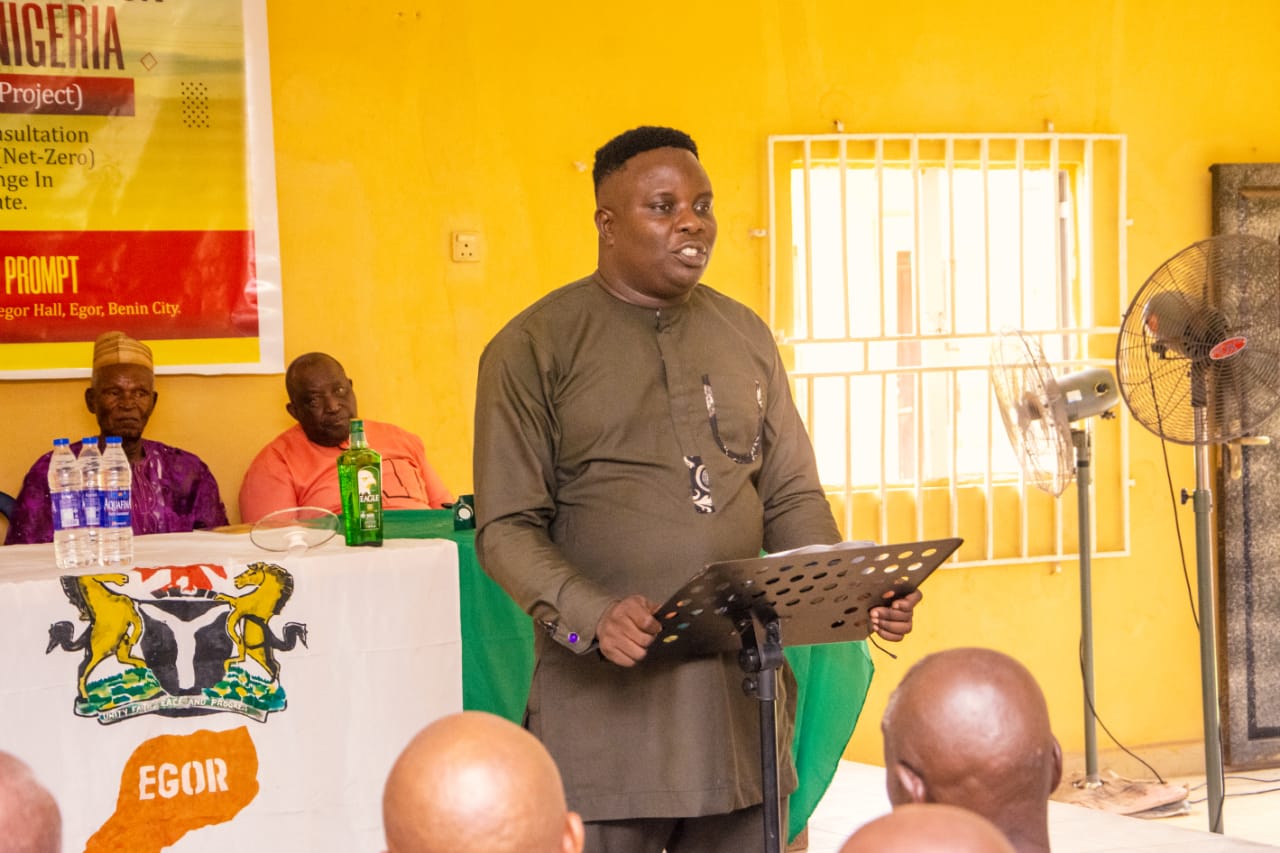A Consortium of Civil Society Organisations (CSOs) have embarked on a community advocacy campaign on net-zero emissions reduction aimed at mitigating the impact of climate change in Nigeria
Newsmen reports that the CSOs; Connected Advocacy, 21st Century Issues, and International Climate Change Development Initiative (ICCDI) took the advocacy to Egor Local Government Area of Edo State on July 10.
A statement on the report of the advocacy signed by the Executive Director of Connected Advocacy, Prince Israel Orekha, was made available to newsmen on Tuesday in Lagos.
In her welcome address, the Head of Socials (HOS) of the council, Mrs. Iyobasa Oronsaye, who represented the acting chairman of Egor LGA, expressed appreciation to the traditional rulers (the Enogies, chiefs, and Edionwere), who represented various communities in Egor LGA.
Oronsanye said that climate change was an issue that cannot be glossed over.
“We can no longer run away from climate change because it is affecting both the rich and the poor, the small and the big nations, so the need for everybody to work together to tackle the crisis.
“So we need every community member to develop new attitude towards safeguarding our planet, and reduce or cut our carbon footprint to ensure we get to NetZero, because Government cannot do it alone,” Oronsanye said.
The Executive Director of Connected Advocacy, Prince Israel Orekha, who also represented other members of the consortium, highlighted the impact of climate change in the community and called for collective actions to mitigate its effect.
Orekha underscored the importance of community involvement in taking action to achieve NET-ZERO and also gave the objective of the programme.
He alluded to the Paris Agreement which required that nations that are parties to the agreement should submit their Nationally Determined Contributions (NDC) – an action plan by countries to cut emissions and adapt to the impacts of climate change with an update every five years.

According to him, many countries including Nigeria have been submitting their NDCs but an aggregation of these NDCs, according to the United Nations Environment Programme’s (UNEP) Emission Gap Reports of 2022 has indicated that NDC commitments submitted so far were inadequate to achieve the Paris Agreement Temperature Goal.
“It is therefore incumbent on all stakeholders from both developed and developing countries to redouble their efforts to reduce their carbon emissions to meet the Paris temperature goal.
“To achieve deep emissions cuts and or net zero parties to the Paris Agreement, countries are in the process of articulating their long-term low carbon emission strategies,” Orekha said.
The executive director said that Nigeria is in the process of formulating its own low-emission strategies and all stakeholders including CSOs, communities are enjoined to support Nigeria on the road to low-carbon development.
“That is why the Centre for 21st Century Issues (C21st), International Climate Change Development Initiative (ICCDI) and Connected Advocacy (CA) are the CSO platforms championing awareness on NET-ZERO carbon emission reduction in Nigeria.
“Accordingly, these three organizations to support Nigeria’s low carbon transition, necessitate this community consultation to raising awareness on Net Zero and climate change mitigation in Nigeria:-
“The main goal of the project is to provide information and tools to communities, media and CSOs to take action for deep emission reductions in Nigeria; also to provide feedback from communities, the media, and CSOs to policymakers on mainstreaming community concerns into long-term mitigation strategies for Nigeria,” Orekha said.
Also speaking, Mr John Akintumile Akinnuba, spoke on the importance of Net-zero and the imperative for community involvement, the meaning of NET-ZERO as the cutting greenhouse gas emissions (i.e., harmful chemicals that traps heat from leaving the earth) is close to zero as possible, with any remaining emissions reabsorbed from the atmosphere, by oceans and forests for instance.
Akinnuba said that to go net-zero is to reduce greenhouse gas emissions and/or to ensure that any ongoing emissions are balanced by removals.
“This could be achieved if we reduce the harmful practice to our environment, tree planting and forest management,” He said.
Other speakers on the community advocacy included Mr. Sunny Asejie, who talked about the benefits of the community, if a Net Zero emission is guaranteed.
Community Agenda for Achieving Net Zero in Egor LGA
Participants at the advocacy campaign responded by committing themselves to tree planting in the locality for environmental sustainability, refuse.
One participant asked about the best means of waste disposal to reduce pollution and the emission of GHG.
Also different strategies for the adoption of renewable energy were discussed.
Panelists at the workshop agreed that NetZero reduction was achievable by 2050, but it required the efforts of the government, individuals and corporate bodies.
By Fabian Ekeruche







